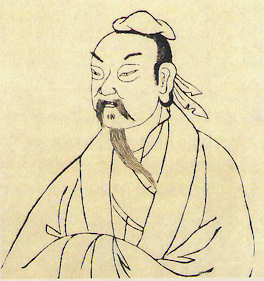
Content created: 2014-07-16
File last modified:


Zhuāngzǐ 庄子 —Master Zhuāng— of the IVth century BC is regarded as one of the most important of the early Daoist sages after Lǎozǐ 老子 himself. (He is also regarded as an antic wag.)
Zhuāngzǐ's thought is not regarded as a substantial refinement or further development of the insights of Lǎozǐ; rather, Zhuāngzǐ’s writings are considered to be less ambiguous, more accessible, reflections on the same issues. Unquestionably, they are among the most accessible of all Daoist texts. Punctuated by brief and often amusing anecdotes, they continually point to the relevance of humble people, mundane affairs, and everyday life in understanding the road to happiness in human existence as well as the great cosmic truths (if one cares about them —Zhuāngzǐ is not sure one should).
On this web site there is one more or less representative chapter (chapter 18: "Perfect Happiness") from the text attributed to Zhuāngzǐ. It concerns both happiness and death and contains a brief philosophical introduction, followed by five anecdotes (including the famous stories of Zhuāngzǐ's conversation with a skull and of his refusing to mourn the death of his wife). In addition four brief but provocative selections are provided from other parts of the Zhuāngzǐ text. Review quizzes are available for these items.
For more about ancient Chinese schools of philosophy, click here. Click here for more about Daoist writings.